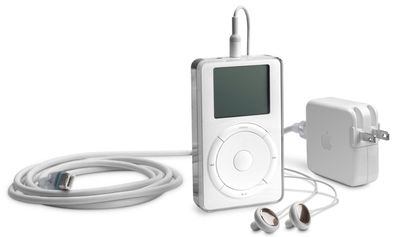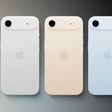Apple Wins iPod Antitrust Lawsuit, Found Not Guilty of Harming Consumers
Jury deliberations for the iPod antitrust lawsuit Apple faced in court last week began on Monday, and it appears the jury has already reached a verdict just a day later. As reported by The Verge, the jury has sided with Apple, finding the company not guilty of harming consumers with anticompetitive practices.
In the class action lawsuit, the plaintiffs argued that Apple had deliberately crippled third-party music services by locking iPods and iTunes to its own ecosystem, which in turn artificially raised the price of Apple's products. At issue was a specific iTunes 7.0 update that disabled the DRM workarounds put in place by RealNetworks, a competing music service, allowing its music to be played on the iPod.

Apple argued that the iTunes update in question was done mainly to improve the iTunes service rather shut down third-party music services, a point that the jury agreed with.
Delivering a unanimous verdict today, the group said Apple's iTunes 7.0, released in the fall of 2006, was a "genuine product improvement," meaning that new features (though importantly increased security) were good for consumers. Plaintiffs in the case unsuccessfully argued that those features not only thwarted competition, but also made Apple's products less useful since customers could not as easily use purchased music or jukebox software from other companies with the iPod.
During the trial, Apple also explained that its DRM efforts and the blocking of competing music services was done at the behest of record companies. According to Apple, its iTunes updates were designed to preserve deals and protect consumers from hackers and malicious content.
Apple executives like iTunes chief Eddy Cue and head of marketing Phil Schiller testified during the trial, and former Apple CEO Steve Jobs also had a large role, in the form of emails and a 2011 videotaped deposition that was shown in court.
The plaintiffs in the trial were asking for damages of $350 million, which could have gone up to $1 billion under antitrust law. Apple's victory means the company will not have to pay out any money at all.
Popular Stories
Since the iPhone X in 2017, all of Apple's highest-end iPhone models have featured either stainless steel or titanium frames, but it has now been rumored that this design decision will be coming to an end with the iPhone 17 Pro models later this year.
In a post on Chinese social media platform Weibo today, the account Instant Digital said that the iPhone 17 Pro models will have an aluminum...
Apple is continuing to refine and update iOS 26, and beta three features smaller changes than we saw in beta 2, plus further tweaks to the Liquid Glass design. Apple is gearing up for the next phase of beta testing, and the company has promised that a public beta is set to come out in July.
Transparency
In some apps like Apple Music, Podcasts, and the App Store, Apple has toned down the...
In select U.S. states, residents can add their driver's license or state ID to the Wallet app on the iPhone and Apple Watch, providing a convenient and contactless way to display proof of identity or age at select airports and businesses, and in select apps.
Unfortunately, this feature continues to roll out very slowly since it was announced in 2021, with only nine U.S. states, Puerto Rico,...
Apple will launch its new iPhone 17 series in two months, and the iPhone 17 Pro models are expected to get a new design for the rear casing and the camera area. But more significant changes to the lineup are not expected until next year, when the iPhone 18 models arrive.
If you're thinking of trading in your iPhone for this year's latest, consider the following features rumored to be coming...
Apple is expanding the ability to add an Apple Account Card to the Wallet app to more countries, according to backend Apple Pay changes.
With iOS 15.5, Apple updated the Wallet app to allow users to add an Apple Account Card, which displays the Apple credit balance associated with an Apple ID.
If you receive an Apple gift card, for example, it is added to an Apple Account that is also...
Three out of four iPhone 17 models will feature more RAM than the equivalent iPhone 16 models, according to a new leak that aligns with previous rumors.
The all-new iPhone 17 Air, the iPhone 17 Pro, and the iPhone 17 Pro Max will each be equipped with 12GB of RAM, according to Fixed Focus Digital, an account with more than two million followers on Chinese social media platform Weibo. The...
Apple should unveil the iPhone 17 series in September, and there might be one bigger difference between the Pro and Pro Max models this year.
As always, the Pro Max model will be larger than the Pro model:iPhone 17 Pro: 6.3-inch display
iPhone 17 Pro Max: 6.9-inch displayGiven the Pro Max is physically larger than the Pro, it has more internal space, allowing for a larger battery and...
The calendar has turned to July, meaning that 2025 is now more than half over. And while the summer months are often quiet for Apple, the company still has more than a dozen products coming later this year, according to rumors.
Below, we have outlined at least 15 new Apple products that are expected to launch later this year, along with key rumored features for each.
iPhone 17 Series
iPho...






















